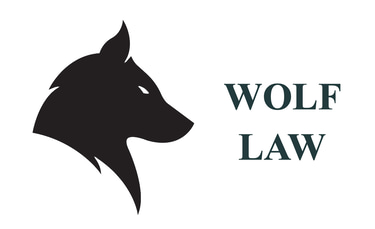Understanding Halal Mortgages: A Guide to Sharia-Compliant Home Financing
Obtaining a halal mortgage requires a thorough understanding of Sharia law and the available financing options. At Wolf Law, we specialize in helping clients navigate halal mortgage transactions, ensuring compliance with Islamic principles.
Mohammad Zulfiqar
5/6/20243 min read


What Makes a Mortgage Halal?
The cornerstone of Islamic finance is the prohibition of riba, or interest. Under Sharia law, money should not be a commodity from which profit is derived; instead, profit should come from legitimate trade or investment in assets. Traditional mortgages, with their interest-based structure, do not align with these principles.
Halal mortgages, however, are structured to avoid riba by incorporating ethical trade and shared risk into the financing process. Let's take a closer look at how these mortgages achieve that goal.
Different Types of Halal Mortgages
There are several types of halal mortgages, each with a unique structure that aligns with Islamic finance principles. The most common ones are:
1. Murabaha (Cost-Plus Financing)
Murabaha is a popular form of halal mortgage. In this arrangement, the bank or financier purchases the property and then sells it to the buyer at a markup, agreeing on a fixed profit margin. This markup represents the profit for the bank, avoiding the concept of interest. The buyer repays the bank over a predetermined period through installment payments. Murabaha offers clarity and transparency since the buyer knows exactly how much they'll pay from the outset.
2. Ijara (Lease-to-Own)
Ijara is a lease-to-own model. The bank or financier buys the property and leases it to the buyer for a specified period. The lease payments include a rental component and an equity-building component. As the lease progresses, the buyer gains ownership equity. At the end of the lease term, the property is transferred to the buyer's ownership. Ijara is popular for its flexibility, allowing buyers to ease into homeownership while avoiding interest.
3. Musharakah (Shared Ownership)
Musharakah is a partnership model where the buyer and bank co-own the property. The buyer gradually buys the bank's share through periodic payments, ultimately gaining full ownership. This structure emphasizes shared risk and reward, with both parties benefiting from property value appreciation. Musharakah is valued for its cooperative nature and focus on shared goals.
4. Diminishing Musharakah
This type of Musharakah involves a decreasing partnership. The buyer makes regular payments, which include a rental portion and a purchase portion. As the buyer's share increases, the bank's share decreases. This structure ensures that the buyer is working toward full ownership while avoiding interest-based payments.
The Benefits of Halal Mortgages
Halal mortgages offer numerous benefits beyond compliance with Islamic principles:
Ethical Investment: By avoiding interest, halal mortgages promote ethical financing practices. Buyers are assured that their financial transactions align with their beliefs.
Transparency: Halal mortgage structures are typically transparent, allowing buyers to understand their financial commitments upfront.
Risk Sharing: Many halal mortgages involve shared risk, creating a more equitable relationship between the buyer and financier.
Community Building: Halal mortgages contribute to the broader Islamic finance ecosystem, promoting growth and sustainability within the community.
How to Get a Halal Mortgage
To obtain a halal mortgage, you'll need to find a lender or financial institution specializing in Sharia-compliant financing. This often involves seeking out Islamic banks or institutions that offer dedicated halal mortgage products. Additionally, it's crucial to work with legal professionals who understand the intricacies of Islamic finance to ensure your mortgage agreement complies with Sharia law.
At Wolf Law, we specialize in guiding clients through the complexities of halal mortgage transactions. Our experienced real estate lawyers are well-versed in Islamic finance principles and can help you navigate the process, from initial consultations to finalizing the mortgage agreement.
Contact Wolf Law for a Free Consultation
If you're considering a halal mortgage, Wolf Law is here to help. Our team is here to assist with closing your Sharia-compliant financing transaction, and can provide you with personalized advice tailored to your unique situation. Contact us today for a free consultation, and let us guide you on your journey to homeownership while adhering to your religious beliefs.
Call Wolf Law at 1 (833) 963-9653 to schedule your free consultation. We're excited to help you explore your halal mortgage options and make your dream of homeownership a reality.
Purchasing a home is a major life milestone, but for many Muslims, traditional mortgages can present ethical and religious dilemmas. This is because conventional mortgages involve interest, which is prohibited under Islamic law. To address this concern, halal mortgages, also known as Sharia-compliant mortgages, offer an alternative pathway to homeownership without compromising religious principles. In this comprehensive guide, we will explore what makes a mortgage halal, discuss the various types of halal mortgages, and explain how you can obtain one. Additionally, we'll outline why it’s crucial to work with a law firm like Wolf Law that specializes in these unique transactions.
What is a "Halal Mortgage"?
Wolf Law
1563 Dundas St. W., 2nd Floor
Mississauga, ON L5C 1E9
Toll-free: 1 (833) 963-WOLF (9653)
Local: (905) 739-0616
Fax: (289) 985-0200
Email: info@wolflaw.ca
